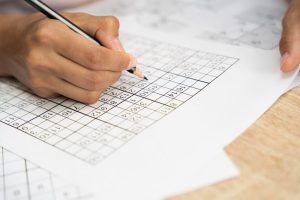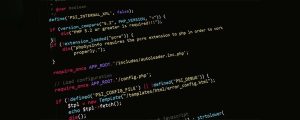Revision Techniques for Students: 10 Best Ways to Revise Concepts

Revising effectively is the cornerstone of academic success, especially for Indian students who often juggle multiple subjects and extensive syllabi. With exams like CBSE, ICSE, and various competitive assessments, mastering revision techniques can significantly impact performance. This blog outlines 10 best revision techniques for students, ensuring you approach exams with clarity and confidence.
- Create a Revision Timetable
- Summarize Notes in Your Own Words
- Practice with Mock Tests
- Leverage Flashcards for Quick Recap
- Employ The Pomodoro Work Method
- Training Others
- Use of Conceptual Aids
- Solve Previous Years’ Question Papers
- Mix Study Techniques
- Maintain a Healthy Routine
A revision timetable brings structure to your study routine. Allocate dedicated time slots for each subject, focusing more on weaker areas. Divide larger topics into smaller, manageable chunks. Include timely breaks to avoid burnout. Sticking to a timetable boosts productivity. It also eliminates the stress of last-minute cramming.
Transforming textbook material into your own words ensures you truly understand the concepts. Create concise summaries, flowcharts, or bullet points for quick reviews. For subjects like science and history, rewriting formulas or dates in your style helps simplify dense material, making revisions faster and more effective.
Mock tests simulate the real exam environment, helping you manage time and identify weak areas. Attempting these exams under timed situations increases confidence and speed. For Indian students preparing for competitive exams such as NEET or JEE, taking chapter-by-chapter and full-length mock tests is invaluable for improving problem-solving abilities.
Flashcards are perfect for memorizing key terms, definitions, or formulas. Use them for subjects like biology, chemistry, or vocabulary building. Digital apps also offer customizable flashcards for added convenience. Revisiting these cards frequently ensures concepts stay fresh, even when juggling multiple topics.
Also known as the Pomodoro work method, this approach recommends studying for 25 minutes and allowing yourself a 5-minute break. Longer breaks of 20-30 minutes should be taken after 4 cycles and this method helps you focus for long periods while taking care of your mental health. Indian students often spend long hours studying and for them, this technique is quite helpful as it encourages studying frequently without feeling overloaded.
In one’s attempt to prepare for a test or exam, revision is one of the most critical stages. One of the most effective forms of revision is explaining complex topics or concepts to other people, as it strengthens comprehension and brings to light what one does not know. This means that instead of getting passive over solving math problems with a peer or a family member, one can practically explain theories and make it fun. This is also one of the best revision techniques.
Students of biology can draw labelled diagrams of organs and systems while students in history can create timelines. Students often learn better with the help of visual aids such as diagrams, charts, and mind maps, especially when an idea is intricate and abstract. These tools are a lot more effective during revisions as they serve as short summaries and capture the most important details.
Practicing past question papers familiarizes students with exam patterns and commonly asked questions. Analyze the marking schemes and understand the weightage of topics. For Indian exams, where specific question trends often repeat, solving these papers is a reliable way to enhance preparation and boost confidence.
Different subjects require different approaches. For instance, tackle mathematical problems through consistent practice, understand physics through experiments or videos, and memorize history through storytelling. Adapting your revision strategies based on the subject makes your preparation more effective and engaging.
A well-nourished physique uplifts mental alertness. Always remember to hydrate, ingest a proper ratio of daily nutrients and take clefts for a breather. Rest induces memory and ensures one is fresh, all while making sure to get at least 7-8 hours of daily sleep. Additionally, yoga and meditation is efficiently helpful in reducing stress and improving one’s attention span.
All mentioned above are some of the best revision techniques for students.
Why are the Revision Techniques important?
Revising should not be merely considered a repeat practice. It requires one to polish their enhancement and their capacity to memorize. Poorly constructed revision techniques restrict students from grasping the concepts and managing their time, leading to increased anxiety during exams. It’s crucial to make a habit of revising regularly from the beginning of the academic year as this strategy best prepares students in the long term.
Bonus Tip: Try Active Recall Techniques
Instead of reading the material and doing absolutely nothing as it fades away, do self quiz’s. This is called active recall. Create questions for yourself based on what you have studied. Without referring to your notes, try answering the questions. This approach fortifies memory retention while also making it more interactive and enjoyable.
Summary
Finding the proper revision strategies can turn the studious panic into something productive with great results. Revision guidelines such as visual aids, mock tests and even flashcards can make studying much easier and enjoyable. Remember to try different strategies and stick to the one which you feel most comfortable with.
At Billabong High International School, we give students the opportunity to find new ways of learning and revising their material. Each of our learners has a unique educational plan that allows them to excel in their studies while also learning how to think critically. Visit us to learn how we promote holistic development and academic achievement for any student.













